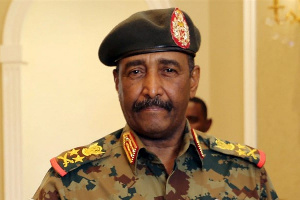Sudan’s military junta is seeking regional support months after deposing Prime Minister Abdula Hamdok’s administration with pressure mounting from international partners to hold elections.
Lt-Gen Abdel Fattah al-Burhan made whistle-stop tours to South Sudan and Uganda this week as the Sovereign Council he chairs struggles to bring peace and calm in the country following the junta’s last October 25 coup.
Al-Burhan’s shuttle diplomacy took him to Entebbe on Thursday, where his host, President Yoweri Museveni was very candid, insisting on elections to legitimize Sudan’s leadership.
Speaking after the meeting, President Museveni said: “I expressed to him that Sudan should use free and fair elections to unite the people and bring peace. What is important is to have fair elections. Elections force people to unite to get numbers. Holding elections disciplines politicians, they are forced to make alliances to win since there is no tribe that has got more than 40 percent to win elections. It is also important to have a neutral interim government.”
This is was Al-Burhan’s second visit to Uganda since becoming chairman of the Sovereign Council in Sudan three years ago. His first visit to the country sparked controversy when he met with then Israeli prime minister Benjamin Netanyahu, and agreed to normalise relations.
In Khartoum, the Sovereign Council said Museveni had praised “the shrewdness and leadership of the head of the country’s Sovereign Council despite the existing internal, regional and international challenges.”
No military
But the Ugandan leader also suggested that future Sudan elections should exclude military leaders in the Council and that the transitional government should be composed of independent technocrats to manage the remainder of the transitional period with complete impartiality, the statement added.
Sources say al-Burhan’s also discussed with Museveni the matter of the use of Nile waters and whether or not to return deposed PM Hamdok who has since fled to the United Arab Emirates.
But Hamdok’s return, according to diplomatic sources, faces two problems; one is the potential loss of support for the junta from Russia, who are helping them maintain the upper hand in the power struggle, and two, is how to convince civilian movements that were party to the transition administration that he can continue leading a government that includes those who toppled him.
In Juba, al-Burhan met South Sudanese President Salva Kiir. A statement from the Sudanese Sovereign Council says al-Burhan briefed both leaders on the junta’s own bid at resolving the current political crisis, saying that the solution is through dialogue that includes the entire political and national spectrum, which leads to consensus for democratic transformation, says Khartoum’s statement.
Source: theeastafrican.co.ke
 Home Of Ghana News Ghana News, Entertainment And More
Home Of Ghana News Ghana News, Entertainment And More





